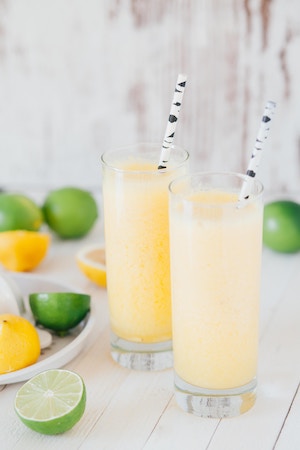Electrolytes & other Nutrients for Keto

If you are experiencing symptoms on a ketogenic diet then it may be solved by increasing your electrolyte intake. As the body begins to burn fat instead of glucose for energy there can be rapid water loss. With this we can also lose a lot of salt and minerals. Our nutrient intake will likely change as well. With keto there is less of a need for some nutrients but others are essential. For certain health conditions it can be helpful to track nutrients especially at the beginning or if symptoms arise. I’ll go over what to watch for with keto and some of the most common imbalances I see.
Mental Clarity: the Gut-Brain Axis
Healthy fats are excellent for brain health. One of the benefits of keto is that people do feel a reduction in brain fog. Before keto there can be a build up of endotoxins in our body. If there is dysbiosis in the gut these toxins get released each time we eat. Toxins like lipopolysaccharide (LPS) begin to circulate. The body responds by launching an inflammatory response.
The gut is meant to be a friendly place so when chronic inflammation occurs in there nothing really works. Nutrient absorption, gut lining integrity and post-biotic production of short-chain fatty acids are inhibited. But keto takes out many of the foods that irritate the gut and intermittent fasting helps to stave off these toxins. This reduces the inflammatory response and things calm down. And certain probiotic strains can actually be used to kill off some of these endotoxins.
Having variety in the types of fats you eat is important. EPA and DHA are especially important for brain health. If there is a lot of LPS then olive oil is better than coconut oil. Variety in fats is helpful for maintaining a diverse gut microbiome. Carb cycling using resistant starches, like cooked and cooled white rice or potatoes, also feeds the beneficial bacteria. Prebiotics do this as well and I strongly suggest using these as part of your supplement plan during keto.
Fats also help with absorption of nutrients. But by far the most benefit we see is the regulation of metabolism and a reduction in insulin resistance. This calms cortisol and also reduces inflammation. Stable blood sugar helps with energy, mental clarity and focus. So let’s talk a little more about nutrients.
Eat More of These & Less of These
As a fat burner you may need less vitamin C because glucose competes with vitamin C. Similarly the metabolic pathways for carbohydrates require more B vitamins. That means in a lower carb state the need for certain b vitamins will be less.
However, many people who eat keto are consuming significantly less nutrients. The way around this is to eat your way into keto with lots of low carb nutrient dense foods. Examples of these include broccoli, green onion, asparagus, kale, spinach and carrots. As long as you are tracking your protein intake and getting enough of grass-fed meats, wild fish and some shellfish or organ meats you should be fine. An app like cronometer is excellent for tracking micro nutrients as well as making sure your carb count is low.
What About Nuts, Seeds & Dairy
Well these can be good for some people and bad for others. Anyone with an autoimmune conditions needs to check if their symptoms become worse with these. Lectins can be irritating to the gut and lactose or casein in dairy is a common, cross-reactive allergen.
On the up-side, these are nutrient dense foods full of good fats. Some nuts can also be higher in carbohydrate so be cautious. Dairy is highly palatable so it is easy to overeat and may raise LDL (low density lipoprotein). It’s really meant to be a side-note or a condiment type of food.
Electrolytes & Salts
If keto is working well for you in general but some symptoms have popped up then increase your electrolytes. Keto flu is the term given to describe feeling yucky during the adaptive phase. Symptoms that you haven’t had for awhile can also emerge. People with thyroid or adrenal issues may see an exacerbation in symptoms. While electrolytes won’t fix these issues, it may curb a flare. Bone broth is a good source of electrolytes as long as you tolerate histamines & glutamate.
Ensure that your salt intake is also adequate. Sodium follows a U-shaped curve and most people are scared to reach the high end but the slope is much steeper at the low end. Any salt is ok to use as long as your electrolytes have a good profile of nutrients. I prefer pink salt in my kitchen and it could be because it’s pink!
Related Posts
 Brain Changes in Perimenopause
Brain Changes in Perimenopause
 Hormones Involved with Autism Spectrum Disorder
Hormones Involved with Autism Spectrum Disorder




